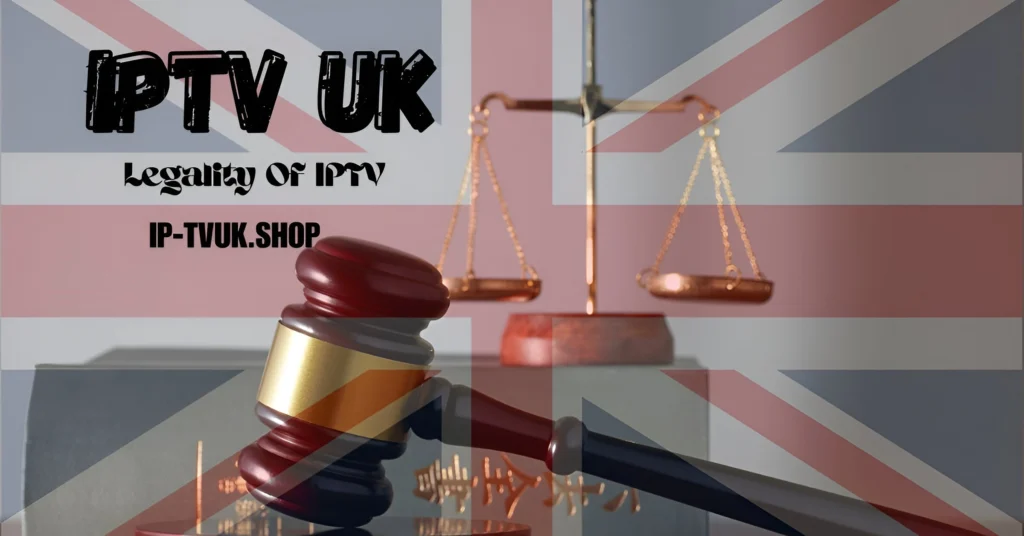By providing consumers with on-demand video content and live channels via internet streaming, Legality of IPTV (Internet Protocol Television) has completely changed the way people watch television in recent years.
However, as its popularity grows, so does interest in—and some misunderstanding of—its legal ramifications. Is IPTV permitted? The answer is complicated because Legality of IPTV is dependent on a number of variables, such as service type, content licensing, and local laws.
How Does IPTV Operate and What Is It?
Internet Protocol Television, or IPTV for short, is the practice of distributing television programming via Internet connections as opposed to conventional broadcast, cable, or satellite television formats.
IPTV provides a watching experience that is both personalized and on-demand, in contrast to traditional television, which broadcasts all material at once. It enables viewers to choose their preferred shows directly from a server, whether they are stored or live television.
Legality of IPTV comes in three primary varieties:
- The term “live television” describes the internet streaming of television stations in real time.
- Video on Demand (VOD): A collection of films and television programs that viewers can watch whenever they choose.
- Like DVR services, time-shifted media enables consumers to watch previously aired television programs whenever it’s convenient for them.
Even though the technology is completely legal, issues with content sources and licensing come up, creating a complicated legal environment.
When Is IPTV Acceptable?
Fundamentally, IPTV is a valid technology. IPTV UK technology is used by a number of well-known businesses and platforms, such as YouTube TV, Hulu, and Netflix, to stream content legally. The following are the primary elements that determine whether an IPTV service is legal:
Appropriate License Contracts
An IPTV service needs to get licenses from studios, networks, or content suppliers in order to operate legally. These licenses guarantee that content that is streamed conforms with intellectual property and copyright regulations. In order to allow lawful streaming, legitimate IPTV providers pay royalties or other payments to the original content creators or distributors.
Conformity on the Regional Level
Television material licensing frequently differs by country, and some content may be prohibited in others. Legal IPTV services operate within these parameters and, because of license limitations, might only offer content that is accessible for streaming in particular nations.
Openness in Service
Reputable UK IPTV services usually provide transparent details about their licensing, price, and content sources. They frequently have business addresses, customer service, and an industry history. One important characteristic that sets one legal service apart from a questionable one is transparency.
IPTV providers with full licenses and legal status include:
- Netflix: Netflix delivers an assortment of authorized movies and TV shows that are accessible by upon request screening.
- Sling TV: Live broadcasts are accessible via the paid streaming provider offered by Sling TV.
- Amazon Prime Video: delivers live TV and immediately shows that are authorized by multiple producers and broadcasters.
When Is IPTV Prohibited?
That being said, not all IPTV services follow the law. Copyrighted content is frequently streamed by illegal IPTV services without authorization or license agreements. The following warning signs suggest that an IPTV service might be conducting business unlawfully:
Illegal Sites of Information
One of the most common signs of illegal IPTV is unauthorized material. Some IPTV providers do not pay royalties or fees for copyrighted content because they transmit popular channels or show without authorization. Since these services do not suffer the fees associated with legitimate licensing, they can appear suspiciously cheap or may even be free.
Budget-Friendly Membership Plans
It is frequently an indication that a service is streaming illegally if it provides quality content, such as live sports, new movies, and well-known TV networks, at a low cost. These inexpensive services often draw customers who might not be aware of the legal ramifications since they believe they have gotten a fantastic deal.
Uncertain or nonexistent authorization details
Another red flag is greater openness regarding the source of content and the people who license it. Illegal IPTV providers frequently don’t disclose their business strategy or the methods by which they obtain their programming, and they hardly ever offer clear terms.
Concealed or Overseas Actions
Numerous Legality of IPTV services function outside of established legal frameworks and frequently register in nations with lax copyright enforcement. If the service is shut down or stops functioning, they might be hard to find and hold accountable.
The Potential Legal Impacts of Illegal IPTV Usage
Although using an unauthorized IPTV service might not seem dangerous at first, users may experience various issues and legal repercussions:
Costs and Charges
It is illegal to view pirated content in several nations. Even if a user claims ignorance about the legality of the service, they may still be subject to penalties or fines if they are detected streaming unlawful content. Although enforcement varies, some regions impose penalties on end users.
Hazards to Information Security and Privacy
Because illegal IPTV providers frequently lack the security architecture of legitimate platforms, consumers are at risk of malware, phishing scams, and data breaches. Users’ privacy may be seriously jeopardized if their viewing preferences, payment information, or personal information are compromised.
Unreliable Service and Absence of Assistance
Copyright enforcement activities frequently result in the shutdown of illegal IPTV providers. As a result, users might require a warning or other action before they can access the service. Furthermore, these providers hardly ever provide customer care, which might be frustrating if there are technical problems.
